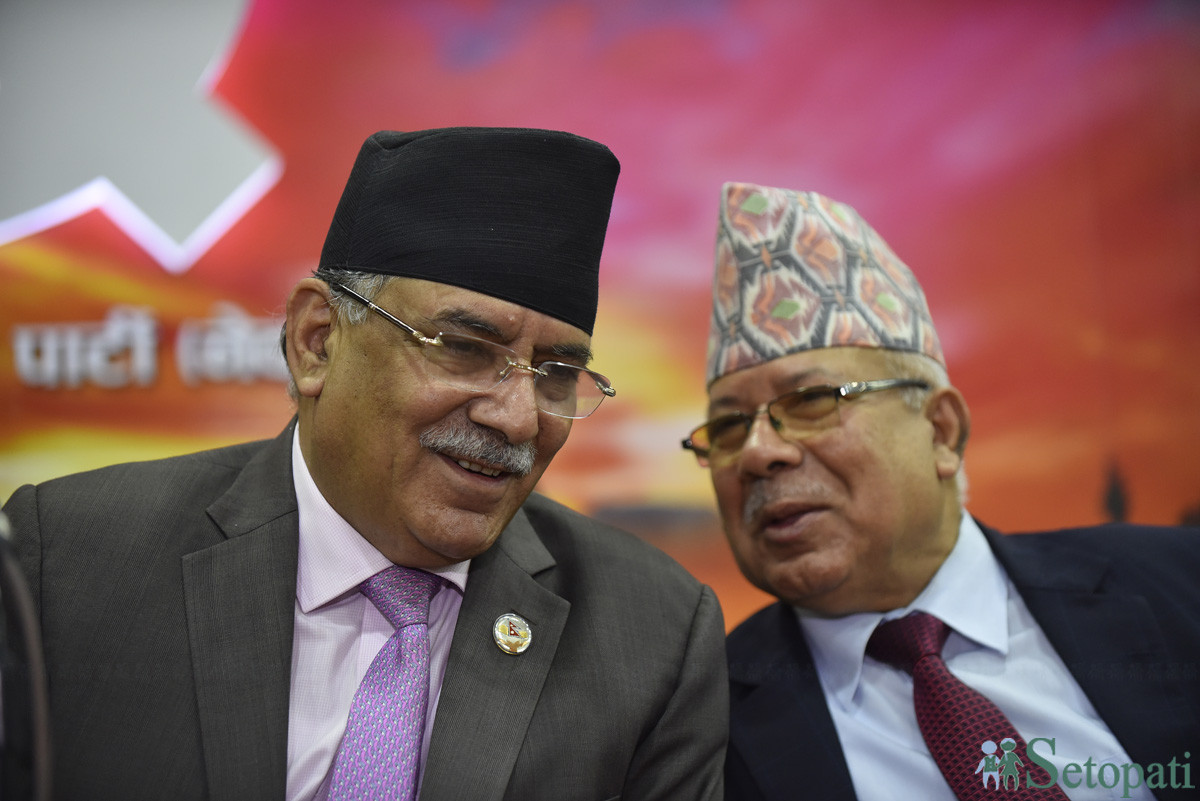Precedent of the Election Commission is with the faction of Pushpa Kamal Dahal and Madhav Kumar Nepal in the dispute for official recognition as CPN.
The then Nepal Sadbhavana Party had split into two headed by Anandi Devi Singh and Rajendra Mahato before the Constituent Assembly election of 2008. Mahato became party chairman later through the general convention when the dispute for official recognition was continuing in the Election Commission.
But the faction of Singh was recognized as the official Nepal Sadbhavana Party after she proved majority in the central committee that existed before the split and Mahato had to register a new party. The Election Commission had summoned all the central members in person to verify their allegiance to the respective factions before taking the decision.
The Dahal-Nepal faction and the faction of Prime Minister (PM) KP Sharma Oli both claim to be the official CPN now. The Election Commission will now have to settle this dispute about official recognition. "The legal provision requires that the faction that has the majority in the central committee at the time of initial party registration should get official recognition. We are now in the process of legal resolution of CPN dispute," Election Commission Spokesperson Raj Kumar Shrestha says.
There were 441 central committee members when the then CPN-UML and CPN (Maoist Center) unified to register CPN with the Election Commission. Six more central members were later added to that.
The Dahal-Nepal faction has already staked claim for official recognition at the Election Commission submitting signature of 297 of those central members. "Three of the 297 who signed for us have since gone to the Oli camp. We can now say we have support of 294," standing committee member Surendra Pandey tells Setopati.
Oli, meanwhile, has unilaterally added 556 central members and expanded the central committee to 1,199 saying more members will be inducted in the future to complete 1,199. The Oli faction has sent documents about induction of new central members and amendment of the party statute to the Election Commission.
But it has support of just 141 central members in the central committee registered with the Election Commission before the start of dispute.
The Election Commission summons both the sides with evidence to establish their claim for official recognition and tries to settle the issue through consensus as per the law. It then grants official recognition to whichever faction that proves majority in the existing central committee if the two sides fail to agree, and the other faction will have to register a new party.
The factions can even bring legal practitioners to plead on their behalf during the hearing conducted by the chief commissioner and commissioners of Election Commission.
Former Election Commission chief Bhoj Raj Pokharel points that the law about official recognition of political party has not changed since the time when the dispute about Nepal Sadbhavana Party was resolved. "Disputes about political party and formation of new parties continue in Nepal. They come to the Election Commission for official recognition. Some of them add and show a higher number. But those who have the majority in the party before the dispute get official recognition," Pokharel tells Setopati. "The Election Commission has been working in spirit of the law about political party as far as I understand."
Another Election Commission chief Neel Kantha Uprety also says the faction that has backing of the majority of central committee members in the updated record of Election Commission. The Election Commission looks at the data and documents, and grants official recognition after a hearing, according to him.

